Massachusetts seeks to ban invasives
This is an interesting article. We have talked about this periodically here. I found it on the NE Gardening forum and thought it might be interesting to some here also.
Here is a link that might be useful: Ban on invasives
Comments (36)
huachuma
18 years agolast modified: 9 years agoI find it interesting that certain species of two of the plants listed, (by Genus only), Orobanche and Cuscuta, are considered native to Massachesetts. These are both parasitic plants, so I can understand why they would be banned.
I would think it would unlikely that anyone would intentionally sell or buy these plants, (although I did purchase a Fuchsia once that must have had dodder seeds in the soil, because it wasn't long before the whole plant was engulfed).
Mike
njtea
18 years agolast modified: 9 years agoThere are less than a dozen plants on the list that I've ever seen for sale - barberry and dame's rocket (seeds) to name two.
What I find perplexing is how is MA planning to "ban" stilt grass or autumn olive or tree of heaven - does anyone knowingly imports these into Massachusetts?
Related Professionals
Folsom Landscape Architects & Landscape Designers · Manhattan Beach Landscape Architects & Landscape Designers · Waunakee Landscape Architects & Landscape Designers · Pottstown Landscape Contractors · Peabody Landscape Contractors · Athens Landscape Contractors · Bridgeview Landscape Contractors · Kahului Landscape Contractors · Medford Landscape Contractors · Oakland Landscape Contractors · Richmond Landscape Contractors · Wells Landscape Contractors · Fallbrook Driveway Installation & Maintenance · Jacksonville Swimming Pool Builders · South Riding Swimming Pool BuildersIris GW
18 years agolast modified: 9 years agoInteresting and certainly a step in the right direction. It's too bad that some of the plants with a two step approach have such a long phase-out (2009?).
NJTea, while I agree that no one perhaps knowingly imports stilt grass, perhaps this means you (as a nursery) have to do a better job of ensuring it doesn't get passed out to the public as hitchhikers in nursery pots. That would be responsible. I can't tell you how much clover I've brought home this way!
Creating a noxious weed list is the first step in being able to ban the sale of certain plants. I am waiting for Georgia to take that first step - we currently have no state noxious weed list and nurseries are still selling japanese and chinese ligustrum here.
njtea
18 years agolast modified: 9 years agoEsh, I work at a graden center occasionally during the busy season and I spend some time pulling weeds out of containers and I have to say that it's mostly crabgrass, knotweed and clover. I can do that because I'm not paid for my labors, I work there for the love of it. Most garden centers don't have the workforce to pull weeds from containers, however, especially during the busy season. Customers needs to learn to recognize noxious material and pull it out before they purchase the plant; I see a number of people doing that.
Regarding barberry and some of the other plants on the MA list , I see a catch-22 situation. Homeowners want plants that are deer resistent, which many of the non-natives/invasives are. Deer need to be brought under control so that people feel they can buy native plant material that the deer won't devour soon after planting.
roseunhip
18 years agolast modified: 9 years agoThat's an interesting topic, vonyon.
It happens the City of Montreal, here, finally takes steps to try and eradicate buckthorns from its parks. It was in the papers the week before.garden4wildlife
18 years agolast modified: 9 years agoesh_ga, did you know we (GA) are one of only five states in the USA that doesn't have a state noxious weed list/official state invasive list? The current head of the GA Dept. of Ag., Tommy Irvin, has repeatedly shown that he does not care what people think in any aspect of agriculture - he routinely ignores requests for consideration of serious issues and even requests for investigations of serious abuses. He's going to be up against some people who appear to be a lot more open to hearing the public's concerns. I think the best thing Georgians can do about noxious weeds/invasives right now is to vote for anybody but Tommy Irvin in the next Dept of Ag. election, and encourage everybody they know in GA to vote against Irvin. I know somebody who knows just about everybody in the GA Republican party, and she was telling me that one of the candidates for Irvin's current position wants to hear people's concerns and has promised to try to work on what he can. I forgot what she said his name was but if I remember I'll post it (I'd recognize it if I saw it).
NJ_Tea, I don't know how it is in MA, but in GA, at least in my part, you can walk into almost any nursery and find at least a couple of kinds of invasives - Eleagnus sp., English ivy, Japanese honeysuckle, Asian wisterias, Bradford pears, privet, Nandina, water hyacinth, porcelain berry vine, and dozens of others. Nandina, Eleagnus sp, and privet are still top sellers as foundation plantings. A lot of people actually get defensive to the point of belligerence at the suggestion of removing their wisterias or Jap. honeysuckle because they think it's so pretty/smells so good/the hummingbirds like it/etc. Bradford pears line many a street in GA. People buy English ivy by the dozens of plants so they can cover up ground/trees/walls in a hurry (and I have a feeling a lot of them probably regret it a few years later, but by that point they can't get rid of it). Plant nurseries selling invasives is definitely a problem here.
The other reason I think a ban of invasive species in EVERY state would be a good idea is because of the prevalence of mail order companies, like Forest Farms, and sellers on ebay. Forest Farms sells almost every non-aquatic invasive that plagues this country - all the ones I've already named, plus Ailanthus, Norway and Jap. maples, mimosa, bamboos, barberry, and dozens of other invasives. Forest Farms is one of the worst, but they're not the only company by far to sell terrible, well-known invasives. Companies like that which obviously care about nothing but money are a real problem because they ship things across state lines to people who have no idea what an "invasive exotic" is. They give no clue in their descriptions as to how invasive those plants are; but if there's a state ban on a particular plant, then by law, they're not allowed to ship that kind of plant into the state that has a ban on it. So an invasives ban is an excellent idea for that reason alone. Likewise, ebay has said they won't allow illegal activity, so getting more invasives on state banned lists will mean that ebay can pull more invasive auctions off before the seller has a chance to ship their seeds and cuttings and plants all over the country to unsuspecting people.
The number of people who have no idea what an invasive is much higher than I think most of us on these forums realize. Most people in general don't know much about plants, much less invasive plants. Even the ones who do know something about plants usually have a very fuzzy, poorly defined idea of what an invasive is. And even the people who know what invasives are very often rationalize it by saying, "My one [insert name of an invasive here] is well-behaved, so there must not really be a problem; people are making it up," or "I keep my [insert name of invasive here] cut back, so it's not invasive," or "I know it's invasive, but one plant won't cause that much of a problem, and I like the way it [looks, smells, attracts some bird or butterfly]." Most people have NO idea how much damage one plant can do, and most people who do know what an invasive is have a screwed up concept - they think that "invasive" refers only to the immediate area, so if they don't see a problem in their own yard, then they don't think there's a problem ANYWHERE. And true, one plant probably won't do that much damage by itself; but remember that there are thousands of people who think that their "one" plant isn't going to any damage, and those "one" plants will certainly end up crosspollinating whenever the same species is nearby. So most people don't even think twice about ordering wisteria or English ivy - they have no idea how it will take over everything in its path in a couple of years, or how those vines can strangle and kill trees, creating hazards, or even pull down stone columns if allowed to grow up the side of a house. People who do know what invasives are very often plant them anyway because they have the misconception that they're keeping the plant in control if they don't see a problem on their own property. The banned plants lists in every state are needed to keep people like that from buying things that unscrupulous companies continue to advertise to the public as wonderful garden additions.
Iris GW
18 years agolast modified: 9 years agogarden4wildlife, what a wonderful post. I feel like I should've been saying "amen!" after every paragraph!
I couldn't agree more with your assessment of the average gardener and their understanding of invasives. As long as they get what they want, who cares about the rest of the place?
Thanks for the tip about Tommy Irvin. I do vote and I'll be looking at the candidates this year.
roseunhip
18 years agolast modified: 9 years agojillmcm, I believe I have read in the thread one or two mentions about importation. Therefore, the ban would not touch native plants, implicitely. I too was looking for the semantics in it.
roseunhip
18 years agolast modified: 9 years ago...also, you have to click on the hyperlink to see the proposed list. (Just in case you haven't noticed it.)
vonyon
Original Author18 years agolast modified: 9 years agoJill: That is a very good point. Sometimes the two words are used interchangably. I am specifically concerned with non-natives myself. Like you, I have altered my buying habits over the years to avoid non-natives other than food like tomatoes.
Garden, Rose, and others: I personally have wondered why the government doesn't ban the selling of such things that are known to be invasive especially since they spend so much money trying to eradicate them. I personally wish, that, at the very least, nurseries were required to label plants that they sell (kind of like they do cigarettes). This would probably go a long way to educate people who are just getting into gardening. I know I wish I had known more about it. I also do agree that many people do not understand the problem, but probably would be happy not to contribute to it if there was more information available to them.
jillmcm
18 years agolast modified: 9 years agoVonyon, I think there are (at least!) a couple of reasons why there is no coherent national policy. One is the size of the country and the number of the invasives involved; determining what can and can't come in is typically left to the states. That would be appropriate except for the fact that 50 different sets of regulations probably means that importers, chain nurseries, etc. ignore all of them.
Second, the government has a noticeable lack of interest in prohibiting the import of just about anything unless forced to do so. Sheer inertia will guarantee that this issue does not come up unless the agricultural lobby raises it, for example. Big agriculture is focused on things that affect production, however, and their definition of "invasive" is not the same as ours.
I think the big nurseries would provide the information if people made a loud enough hue and cry about it (and backed it up with their spending patterns), but since most people aren't aware of the problem, they continue to buy invasives, the nurseries continue to sell them and so on...
Elaine_NJ6
18 years agolast modified: 9 years agoesh's post was a great synopsis. One more rationale you hear is, how can a tree be bad? They all provide shade and shelter for animals, food for birds, and cool the air, right? That's a hard one to counter--you have to point out that a native would do all those things, plus perhaps provide food for rarer native species that can eat only certain things. . . After all, we want some birds besides pigeons and some mammals besides squirrels.
maifleur01
18 years agolast modified: 9 years agoIn all the posts invasive, native, non-native you have to remember that what is native in one area and controlled because of conditions in that area may become a pest in another. You can't just outlaw every plant that one area considers invasive or non-native without looking at where it actually came from and why it got to where it is. A plant that is native to Maine can be transplanted to Oregon.
A national list would outlaw the plants in Maine and Oregon. Government does not make the distinction. Generally it is an all or none policy. If you ban all non native plants where would you receive your apples from. Until the settlers moved west there were no apples on the rest of the country.
The natural progression of plants have been repeated over and over. Grass, one tree, forest, one small opening in forest floor when trees die, bigger opening as trees age, grass. You can prevent the progression and change of flora for a while. I would not like to be the one to state what plant is invasive or non-native anywhere in the progression.
I will now fade into the shadows again
vonyon
Original Author18 years agolast modified: 9 years agoI don't think that a national list would make any sense unless it addresses the problem by region/state or area. Native to one area is certainly not native to all areas in such a huge country. I don't think anyone is saying that. What is upsetting is that this country does not have a policy that prohibits selling plants that are non-native and invasive region by region. It simply makes no sense.
serenoa
18 years agolast modified: 9 years agoI have argued with gardeners, nursery owners and the nursery association in Florida that it is better if we regulate ourselves on the issue of exotic pest plants than to have the state regulate us. If the earlier posts are right, it is scary that Massachusetts is planning to ban some of its own native plants. It would be worse still if the feds got involved. On the other hand, if nurseries don't care about anything but profit and gardeners don't care enough to learn about the issues, it will be our own fault if the government starts taking our choices away.
garden4wildlife
18 years agolast modified: 9 years agoI agree that a national list serves little purpose, except perhaps for the most broad-ranging of invasives, like many aquatic invasives, some mullein, etc. I think it would be far more effective to have a national system supporting individual state ban lists. That said, I don't think leaving things entirely up to states is going to solve the problem, because then you've got things like some states that don't have invasives lists (like my own state), even the states that do have lists vary in how much they actually regulate those plants (some are more suggestions than actual bans), and perhaps most importantly, plants don't know where state lines are. My concern with state ban lists is that it's basically saying, "On this side of the line, X plant is not invasive so it can still be sold and grown; on the other side, it's invasive so it will be banned." Who's going to tell the plants not to cross that line from one state to the next? Obviously states with similar habitats are going to have a good deal of overlap in their lists, if they're doing a good job coming up with the lists, but I doubt any two states would have exactly the same lists. So should there be some kind of "buffer zone" around states that have banned a particular plant, especially if it's one of the really, really bad ones? Should the most aggressive, most damaging plants from each region be banned nationwide, just to be safe, even if they aren't known to be invasive nationwide?
I think state ban lists are a good place to start, because we are desperately in need of something, ANYthing in some places, like GA, but they're not going to do much except to prevent further intentional planting of invasives. There's got to be a lot more done to curb the spread of invasives on a large scale.
loomis
18 years agolast modified: 9 years agoFigured a MA native had to kick in here somewhere. While much of my garden seems to be on the list, I view it as a good start. It breaks my heart to see nursery after nursery in our state loaded with barberries, euonymus and other invasives. They're usually piled up front, while the meager supply of natives (if any-usually one or two token serviceberries) lurks way out back somewhere. It's always interesting visiting the nurseries & watching the people. They're new to gardening, so they pick the junk bushes because that's all there is and they're easy to grow. And they continue to spread, and spread, and spread.
All along our major highways, from CT way up into Vermont, Oriental bittersweet, the northern version of Kudzu vine, is choking out natives & strangling our beautiful trees. I've been fighting it for years in my yard, as well.
I truly feel that, unless we ban this stuff, and nurseries are no longer able to stock it and sell it, nothing will happen. I honestly can't envision the nurseries policing themselves on this issue when there is so much money to be made.
njtea
18 years agolast modified: 9 years agoIn NJ, suburban/rural garden centers would not voluntarily refuse to sell invasives because they would go out of business since they can't sell the natives due to the deer problem.
I would counter Loomis' statement that there is so much money to be made in the garden center business. Believe me, there is not a lot of money being made. The small garden center owners that are in the business for the love of plants and didn't come to the business wealthy to start with, are living hand to mouth. (And the price of gas is going to put many out of business this year.)
Also believe me when I say that customers know and would love to plant natives but instead they buy the barberries, etc. because they know the deer won't eat them.
The only people who buy the natives are those who live in the middle of towns where the deer don't frequent or those who are able to fence off their properties.
What could be more native than a white pine? It's becoming difficult to sell them in parts of NJ because they, too, are now being eaten by the deer.
I know I sound like a broken record but - solve the deer problem and you can begin to solve the problem of invasive plants.
jillmcm
18 years agolast modified: 9 years agoNJTea, I don't know any of the people you know who would like to plant natives but can't because of deer. Here in suburban PA with plenty of deer, they ignore most of my native plantings to decimate my neighbors' gardens full of tasty exotics. There are lots of deer resistant natives that either are not attractive to deer or that will bounce back from browsing, but they are not widely available, at least in my area (and I'm lucky enough to have a native nursery).
But you're right that in some areas, the deer population has grown to the point where they will eat ANYTHING.
jillhudock
18 years agolast modified: 9 years agoPerhaps the way the National governments could get involved is in actually going after the offenders like mail order nurseries or large home improvement stores which sell the wrong plant to the wrong state. So, each state would enforce the importing, etc. but the real threat to the bottom dollar of the company would be the federal governments fines, etc. Maybe $500 per plant!!!! Of course, I am not an expert on politics!!
I know I have tried to educate anyone who asks me about plants. That is one of the best individual ways to promote natives. If you have children or are a teacher, then educate the next generation. If you can vote in a situation like in Georgia, then vote. Just do your individual best! Don't forget that everyone you know talks to you about plants because they know it is your passion. They think of you first whenever they have a question - so we are our own best medicine.
vonyon
Original Author18 years agolast modified: 9 years agoOddly enough, a little off topic.......I just visited Vermont and friends were telling me that the deer population up there has taken a dive to the point where they are limiting the permits. From what those of you from upstate NY and NJ have said, you will probably gladly truck a few up there for them or help them swim across Lake Champlain.
garden4wildlife
18 years agolast modified: 9 years agovonyon, is there a known reason for the deer population decline in VT?
vonyon
Original Author18 years agolast modified: 9 years agoG4W: I'm not sure they know. If they do, the person that told me this didn't know the reason. He did mention that they don't think it is the chronic wasting disease but said that they are concerned that that will eventually spread from upstate NY. I'm not sure where he got this information, so it is possible that it isn't particularly accurate. I know that they do have bear and lots of coyotes up there. Not that coyotes are rare anywhere anymore, but I think they have bear and they are not particularly rare even near the cities.
njtea
18 years agolast modified: 9 years agoI did an internet search on the VT deer population and can't find anything to indicate there has been a significant decline or that hunting in 2005 will be limited. I did notice that young bucks now cannot be hunted until they are 2 1/2 yrs. old. But that's the only limitation I saw. Admittedly, it was a quick search.
vonyon
Original Author18 years agolast modified: 9 years agohmmmmmm.........I'll ask the person for a source. He is pretty well read. It is probably a newspaper.......maybe Vermont based.
garden4wildlife
18 years agolast modified: 9 years agoThanks! I was just wondering if it was the return of natural predators, disease, overhunting, starvation, or what. I'm particularly interested in knowing about the first - there have been a few isolated releases of wolves in different parts of the eastern USA where they were extirpated; I haven't read anything about those release programs in a while and I was wondering how they've affected deer populations now that the wolves in some places have been back in the wild for a few years.
I've been told that coyotes are too small, even in a pack, to take down a deer. I've spoken to people who have studied coyote behavior here in GA and even though deer are certainly an abundant food source all over GA for anything that can take one down, the coyotes never try to go after deer. They only go after smaller things, such as rabbits. We have black bears just about everywhere in GA, including in highly populated suburbs, even some places in Atlanta!, but their presence seems to do little to nothing to affect the deer population. My understanding is that the two main natural predators of deer used to be wolves and cougars. Not many of either of those are left in most places in the eastern USA, hence the huge deer problem even where black bears (and alligators in the southeast) occur in significant numbers.
vonyon
Original Author18 years agolast modified: 9 years agoInterestingly, I thought I had read somewhere that coyotes were learning to hunt in packs. That could be nonsense of course. I have no idea if this was speculation or if they actually know that it was coyotes that had killed deer. My guess is that they probably could take out a fawn or an old deer though.
garden4wildlife
18 years agolast modified: 9 years agoI would think (and this is purely speculation - I don't know this for sure) that coyotes might be able to take down a very young fawn or a very, very sick adult deer if they stumbled upon it; but to actually stalk, chase, and bring down any other deer seems to be at odds with the size and strength of a coyote. Then again, sometimes nature is surprising.
roseunhip
18 years agolast modified: 9 years agoA.W.F. Banfield, from Canada's National Museum of Natural Sciences, in "Mammals of Canada" (1977), writes that the content of their stomach is made up of 4% deer and antelopes. He also writes quite in length about their pack deer hunting techniques, and does not mention anything about taking down particularly week or old individuals. He just says that in the case of the coyote it is more of an equilibrium predatory situation than with the wolf, i.e. several deers or antelopes will often actually attack and kill (stomp to death, for instance) an isolated coyote.
maifleur01
18 years agolast modified: 9 years agoCoyotes and dogs have interbred for years. Back in the 60's at my parents farm near KC you hardly ever saw an animal that looked like coyote pictures. They allways looked like they were strange German Shepards or hounds.
CWD may not be in the area yet, I truely feel it is all over, but I know that West Nile is. Any animal even people if the immune system is weakened can fall prey to other opportunistic infections. Most animals have worms and other things that are normal but add one more thing and there may be problems.
I have seen two deer in my area that are very thin. One had an obvious birth defect and the other was a doe that seemed to only eat rose tips. I never saw her eat any of the other plants available. If deer keep getting smaller each year this is one of the signs that there is not enough food for the current population.
vonyon
Original Author18 years agolast modified: 9 years agoI was going to add that also. I often hear of dogs interbreeding with coyotes. We call them coydogs. I would think a dog mix could easily pack and take down a deer. Actually I thought of it after posting last time. A friend in the next town mentioned a dead deer in her neighborhood that had been ripped apart by coyotes. I have no idea if they came upon a dead deer or if they actually stalked and killed it.
Tessyt
18 years agolast modified: 9 years agoIn the East and South, dogs are now the chief predator of native deer. Whether animal weeds or plant weeds, invasive species are a number one cause of the extinction of native animal and plant species or biological diversity. "The extinction of biological diversity is a threat to civilization second only to global, thermonuclear war." THE NATIONAL ACADEMY OF SCIENCES. Why?
Biological diversity or all native species, create, sustain, support and maintain Earth's ecosystems, are an ecosystem altogether with soil and water. Ecosystems are the physical body of Earth and all biological diversity is the living components of its ecosystem, much like the human body is one organism given life by all its living body parts. An ecosystem, functioning synergistically, altogether, is one, living organism/unit. Any agent that kills biological diversity, kills Earth's ecosystems, and any agent that kills ecosystems, kills Earth.
Humankind is alive because of ecosystems and biological diversity. If it is a native animal or plant, it is a strand in the web of all life; a rivet in spaceship Earth; the bricks and mortar of man's house, Earth. Humans have life because of Earth's oxygen and fresh water factories, i.e., ecosystems. Past living species created Earth's atmosphere and maintain it today. Before the advent of plants/trees/ecosystems, there was no oxygen on Earth.
What is the most deadly, Earth-killing invasive specie in history: The domestic cat. Most recorded extinctions occurred on Earth's islands, and the majority of these extinctions, 78% were caused when European explorers, fishermen and settlers introduced the domestic cat and European rat to these island ecosystems. The domestic cat caused over double the number of these extinctions. Only native plants and animals altogether with soil and water, are an ecosystem, the physical, living body of EArth and man's only home. There is a vast and deadly difference between native and introduced, unnatural, alien, transported plants and animals and biological diversity, man's life-support team and Earth's workforce. tessyt
mountain_curmudgeon
18 years agolast modified: 9 years agoCoyotes are pretty brazen thieves so it's no wonder deer or elk are part of their diet. In mountainous areas, they seem more prone to hunt in packs and can occcasionally take down a deer but being in a pack helps them to defend or steal a carcass. I've seen them deviling a wolf in Yellowstone over a carcass of a newly-killed deer or young elk. One would close in on the wolf and as the wolf chased it, the others would swoop in for a few quick bites. Then the scene would repeat itself.
Coyotes populations decline in areas in proportion to the wolf population. Wolves are a natural control for deer and coyotes. Just a thought.
Tessyt
18 years agolast modified: 9 years agoMountain Curmudgeon: Did you know, that the most profound statement on ecosystem death, Earth death, was made by the father of ecology? It is one of the most revered -- if not the most revered statement in history on the preservation of Earth ever made. In "A Sand County Almanac", Leopold wrote, "Thinking Like a Mountain". In just a few short paragraphs he educates about ecology. He illustrates what happens to a mountain [ecosystem] when he was ordered by the U.S. government to destroy all wolves on the mountain to obtain more deer for hunters.
When he saw the, Green Fire die in the eyes of the wolf, he realized that killing all the wolves on the mountain would kill the entire mountain. The mountain died from too much deer too muchness. And, all the deer died too, because they had consumed the mountain. The burgeoning deer population caused the deer to starve to death.
Mountain was used as a metaphor for ecosystem and Earth. Green Fire stands today for an ecological awareness and education. And, wolves were the natural predator of deer, and when the wolves disappeared, the mountain died.
If you are interested in ecology and the inter-workings of native plants and animals, please read Aldo Leopold's, "A Sand County Almanac, and Thinking Like a Mountain. Enjoy the wild garden -- a wild garden is a man made ecosystem. the best, tt
oscarthecat
18 years agolast modified: 9 years agoMayfleur, please don't do that. You sound like such an interesting person I am sure you have much to offer the garden web. You can e-mau=il me anytime. Steve in Baltimore
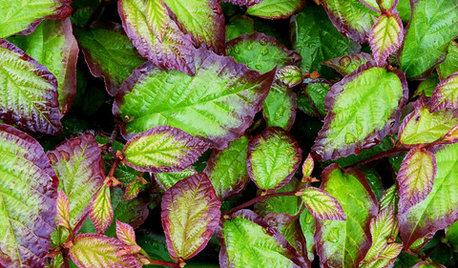

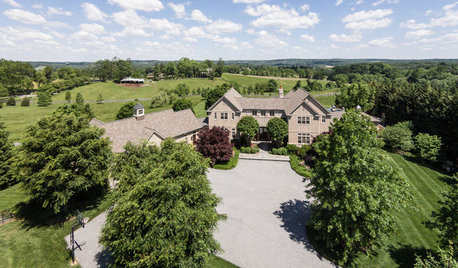
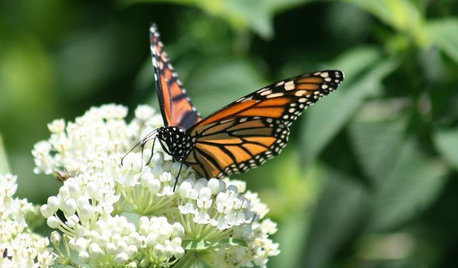
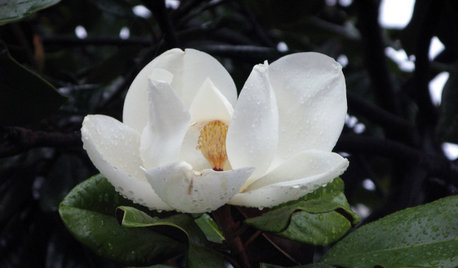
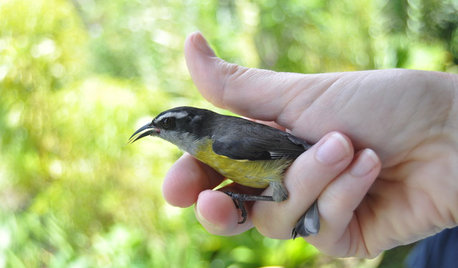


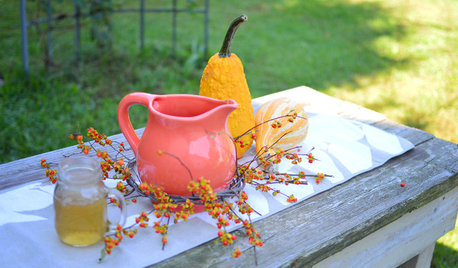
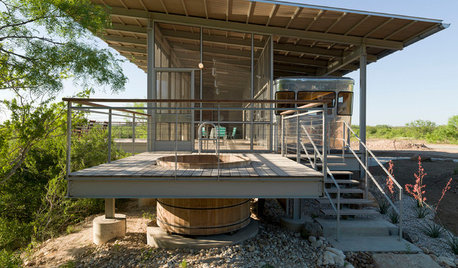






jillmcm